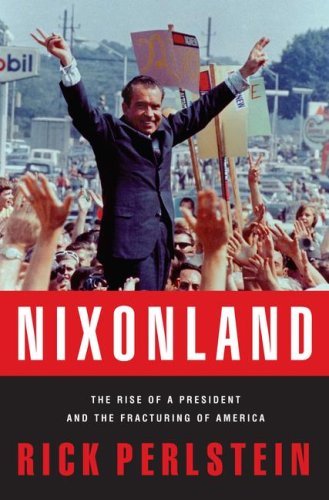Nixonland

Give the election one more week, and the nation would have been spared President Nixon. And then what?
American would have left the Vietnam War sooner, which I guess would have thrown Humphrey one historical advantage, and then he would have been defeated in 1972. By California Governor Ronald Reagan.
A more straight-forward and less messy political re-alignment, I suppose.
Regarding Richard Nixon’s “Southern Strategy”, I never quite realized how much of a necessity it was moreso than an opportunity Goldwater’s defeat had structually changed the Republican party, in its delegate count to the next convention, apportioned by how well the party did in the previous election — when Goldwater winning those four deep South states and his home state and nowhere else. Meaning Nixon had to woo the new king-maker, Strom Thurmond, going into his election.
Our national Consensus unravelled under Johnson, moving beyond the congragulatory half-measures on civil rights under Eisenhower, and with Vietnam the fundamentals of Cold War thinking came to a head. What might be said about the ensuing Apocalypse is that we’re always mired in it and always have been. The pop cultural signposts represented by the three books atop the best-selling list in 1971 (The Population Bomb, Beyond Freedom and Dignity, The Late Great Planet Earth) is always available to crack our cultural psyches — that remains remarkably unchanged. Rick Perlstein knows this well enough — his next book taking off with Patty Hearst — and our rampant cultural paranoia of 1976 through 1986 is covered in similarly apocalyptic terms with this book.